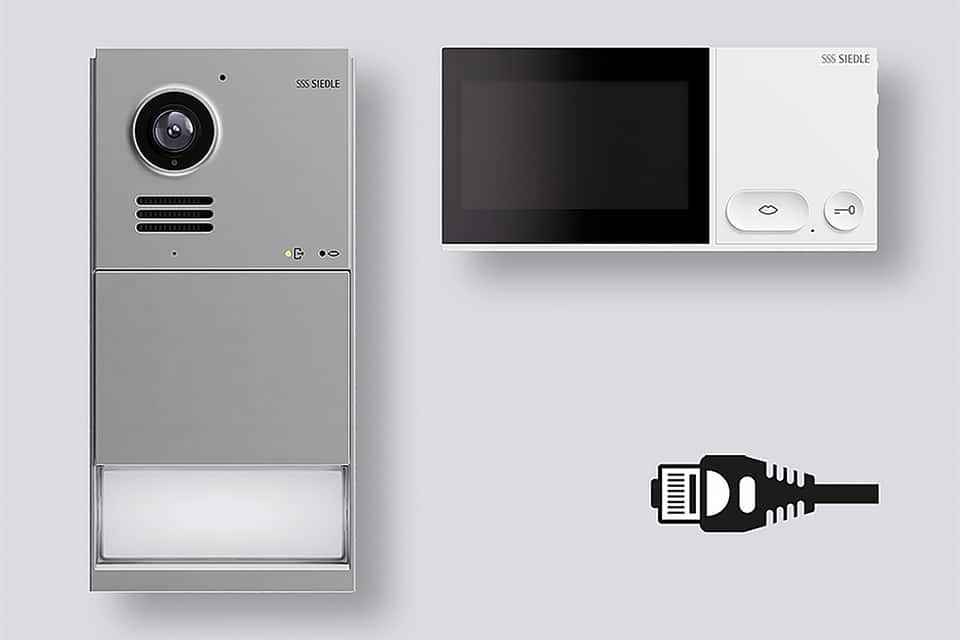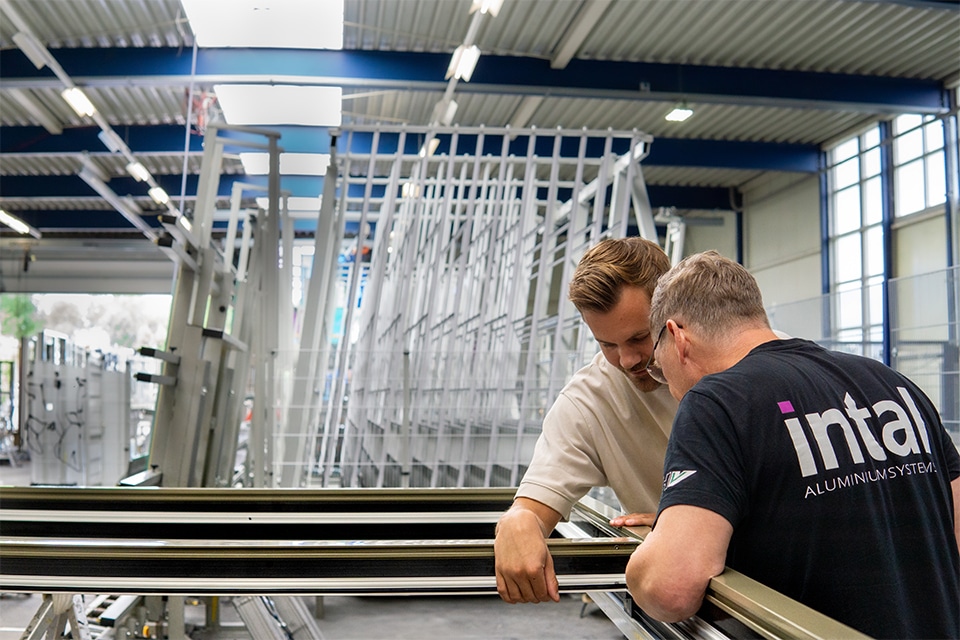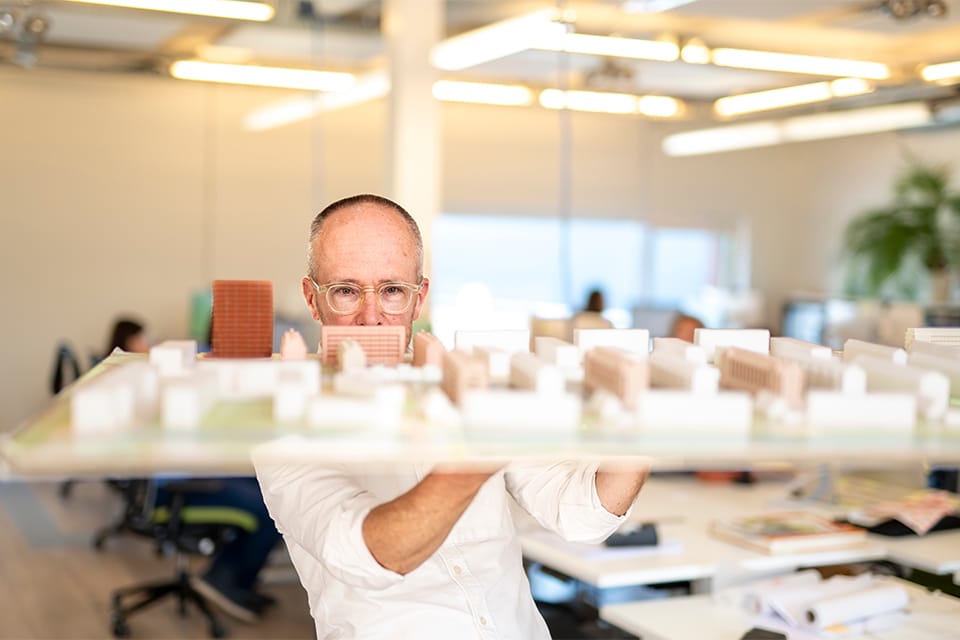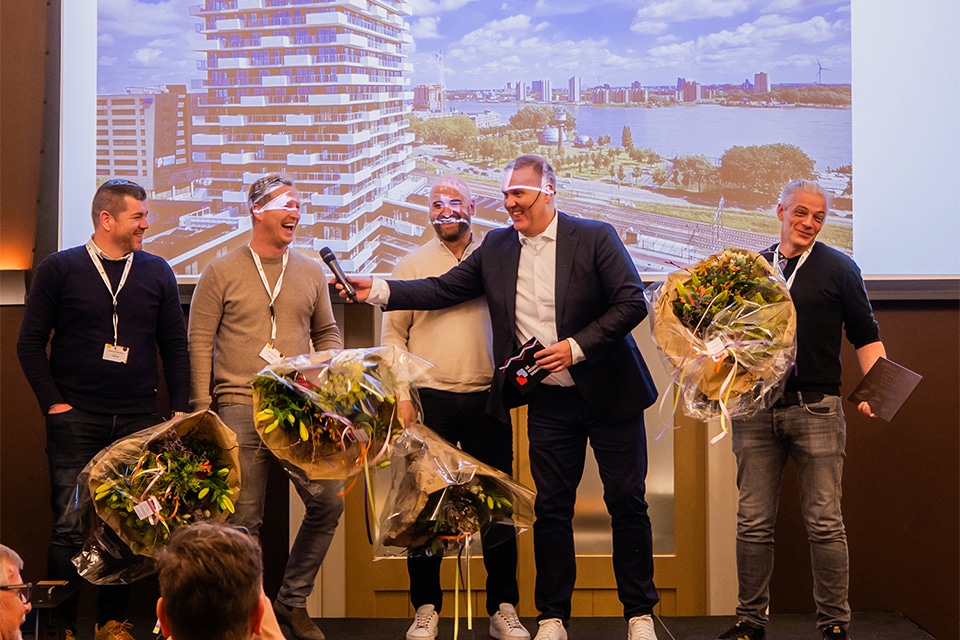
Dakmanship is mastery
Roofing partners set high on sustainability and circularity
A long lifespan, minimum maintenance costs, a considerable CO2 reduction and excellent recyclability in the future: our building roofs have to meet ever more stringent requirements. All-round roofing specialist Consolidated and bitumen roofing manufacturer Derbigum are happy to go along with this and are constantly looking for ways to raise the technical quality, sustainability and recyclability to the highest level.
"The easiest way to reduce our carbon footprint is to maximize the lifespan of our products," says Atze Walsweer, Technical Manager at Derbigum.
"But also by actively collecting bitumen and recycling it into new raw material, according to our philosophy 'No Roof To Waste'. Among other things during the renovation of the parking deck of the former Polaroid factory in Enschede, we are putting this into practice in the best possible way."
On behalf of professional building owners and building managers, Consolidated has been managing, maintaining and renovating flat and pitched roofs for more than 60 years. The nationwide family business is an authorized processor of Derbigum roofing membranes. "Our partnership goes back decades," says Egbert van der Weele, Account Manager at Consolidated. "Initially started from a traditional contractor/supplier relationship, our cooperation has become increasingly intensive and close. Not surprisingly, because the performance requirements from the client are getting higher and higher. For example, with regard to sustainability, life expectancy and end-of-life processing. To meet these requirements optimally, we no longer work according to a top-down strategy, but in an equal triangle with the supplier and client. Derbigum has an extensive range of products with which we can meet virtually any project demand. The technical managers actively think along with us in terms of efficiency and (technical) feasibility. Moreover, the factory enables maximum recycling."
Walsweer likes to play the ball back: "Good functionality and reliability of our roofing stands or falls with proper processing," he emphasizes. "This is another area where our collaboration excels. We continuously challenge each other to improve both products and processes. For example, on our recommendation and as the first roofing specialist in the Netherlands, Consolidated worked with a Jumbo roll during the roof renovation of a block of flats in Enschede. This roll contains no less than 192.5 m² instead of 5.5 m² of roofing material, which saves an enormous amount of time. In addition, the number of seams is greatly reduced, reducing the risk of leaks. In addition, we are experimenting with cubitainers instead of cans of glue and are pushing ever higher on recycling, such as at the former Polaroid factory site in Enschede."

Circular renovation of parking deck
The former Polaroid factory is owned by housing corporation Domijn, which, together with various entrepreneurs and the municipality of Enschede, has committed itself to breathing new life into this unique location. The factory building has been transformed into a real talent factory with a large food hall, art, culture, crafts, entrepreneurship and sports facilities. The 'Performance Factory' consists of four buildings: hall West, North, East and South.
Domijn itself has moved into Building South. Users and visitors to the 'Performance Factory' can park on the parking deck of Hall East.
"The 7,500 m² parking deck was built in the 1960s and was completely depleted technically," Van der Weele says. "We carried out extensive research into the renovation possibilities for this, paying explicit attention to sustainability and circularity. But also on longevity. The new roof had to have a proven lifespan of at least 30-40 years. Together with Derbigum, we are responding to this optimally." The old roof is carefully demolished, reusing or recycling as many parts as possible, he says. "For example, the Stelcon concrete slabs are reused at another location and the old roofing material is cut up by us into square meter pieces and collected in special Derbigum big bags, for processing into new roofing membranes."
Derbigum NT
Derbigum's plant in Perwez, Belgium, recycles about 4,000 to 5,000 tons of bitumen per year. "Our ambition is to expand this amount to 10,000 tons in the future," Walsweer said. "To achieve this, several waste streams are processed. First of all, we recycle our own production residues. In addition, we encourage approved processors to collect not only pure bitumen cutting residues, but also old and suitably removed roofing membranes for recycling."
The roofing material in Enschede was also found to be suitable after laboratory testing. "Upon arrival at our plant and after a content check, the roofing material was processed into Derbigum NT; a bituminous roofing membrane based on New Technologies (NT)."

Minimum 25% from recycled bitumen
To make Derbigum NT, the square meter pieces are shredded, remelted and percentage added to the melt bath with floorable bitumen, says Walsweer.
"Derbigum NT consists of at least 25% of recycled bitumen. We also use recycled PET bottles for the inlay. The roofing membranes have a lifespan of at least 40 years! At the end of their service life, the roofing membranes can easily be overlaid with an additional Derbigum NT bituminous top layer and thus face the next > 40 years carefree. Afterwards, the roofing membranes can be integrally and 100% recycled into a high-quality secondary raw material for new roofing membranes: Derbitumen. Our recycling process has a significantly lower environmental impact than the production of bitumen via natural gas extraction. Thus, we contribute to the circular economy in a unique way."
Low shadow cost
Derbigum NT is KOMO- and DuBokeur-certified and listed as a category 1 product in the National Environmental Database (NMD). "With a shadow cost (MKI) of only €0.54 per m² per year, Derbigum NT also scores best in the Environmental Performance of Buildings (MPG)," said Walsweer. "The environmental impact is minimal. That also makes Derbigum NT very suitable for new construction projects."

Phased implementation
The parking deck in Enschede will be renovated in two phases. "The new roof will be constructed of two layers," said Van der Weele. "First, a Derbicoat NT carpet pad is adhered to the concrete substructure with a cold adhesive. Then the Derbigum NT roofing membranes are burned on top of this. The seams are carefully re-fired once more to ensure optimal waterproofing, after which the driveable pavement is applied as the final piece. At the end of this year, phase 1 (3,500 m²) should be opened for parking, after which we will start phase 2 (4,000 m²) in early 2023."




